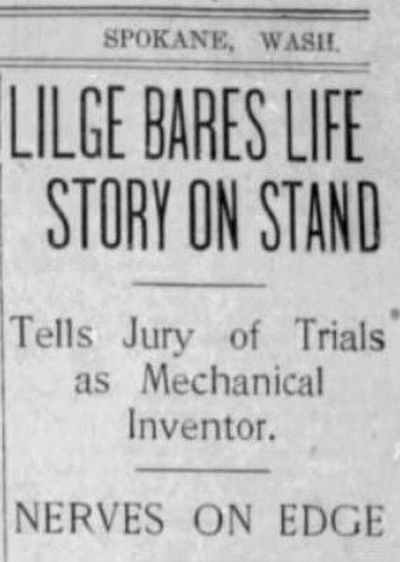This column reflects the opinion of the writer. Learn about the differences between a news story and an opinion column.
100 years ago in Spokane: Mrs. Corbin’s lover and co-defendant revealed his life story on the witness stand

Louis Lilge “bared” his life story, under oath in his trial for first-degree arson.
His defense attorney led him through a timetable of his life before he arrived at the Corbin home.
He was born in Minnesota 35 years earlier, the son of a Lutheran minister. The younger Lilge then became owner of a sawmill in Alberta.
The defendant then trained as a mechanical engineer and began working on his own inventions, including a rotary gas engine and “a flying machine.”
Later, he became a boiler inspector for a railroad in Chicago, a toolmaker in Pennsylvania and an arms maker at the Remington Arms Co. near Philadelphia.
He said he was a foreman with 20 or 30 men under him, working in rush conditions during the war. He said this work was stressful, causing him to “become nervous” and lose weight, from 170 pounds to 130 pounds.
Lilge was just getting to the part of his life that the spectators in the courtroom particularly wanted to hear – his arrival in Spokane and his love affair with widow Anna Corbin – when court adjourned for the weekend.
Lilge, the live-in caretaker, was accused of trying to burn down the landmark Corbin home.
From the transit beat: The Spokesman-Review editorial page ripped the Spokane City Council for not accepting a 7-cent streetcar fare compromise. Instead, the council went ahead with a plan to undercut the streetcar companies by allowing extensive jitneys (private motor buses) to operate throughout the city.
The editors asked: Would the streetcar companies be forced to cut service? Or fail entirely? Would Spokane then become “entirely dependent on the jitneys?”
Only time would answer these questions, and the editors feared the answers would be yes.